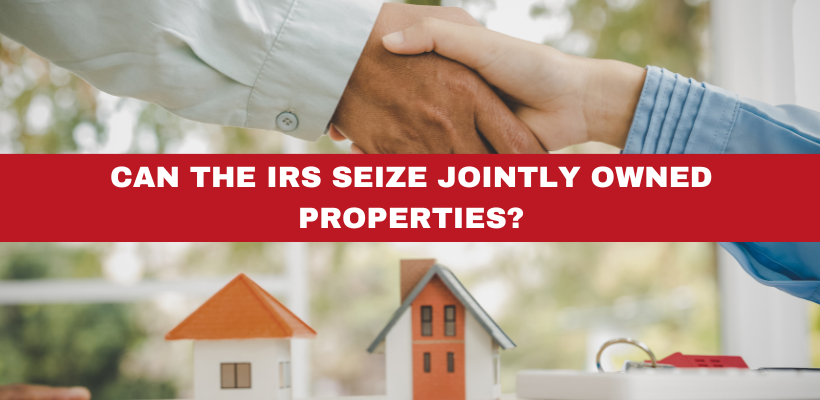One of the most pressing concerns when dealing with IRS tax debt is the risk of property seizure. A common question people ask is: Can the IRS seize jointly owned property? This is especially concerning when the other owner doesn’t owe taxes. The short answer is yes, the IRS can seize joint property, even if one of the owners is not liable for the debt.
How does the IRS view jointly owned property?
When the IRS determines that you owe taxes, it can take aggressive collection actions, including placing liens on your property or seizing it outright. Joint ownership doesn’t shield a property from these actions. From the IRS’s perspective, your ownership share in the property is considered an asset that can be used to satisfy your tax debt.
For example, if you own a property jointly with a spouse, family member, or business partner, the IRS may still take action against the property. However, they must respect the other owner’s rights. This often complicates the seizure process and may lead to partial property liquidation or other remedies.
Final Thoughts
The IRS has significant power to collect unpaid taxes, including seizing jointly owned property. If you owe back taxes and are worried about jointly owned properties, consider resolving the tax debt before it escalates to seizure. The IRS often provides options like installment agreements, offers in compromise, or temporarily suspending collection actions if you qualify.
If you need assistance with an IRS tax problem, contact our office today. We can help protect your property and negotiate with the IRS on your behalf.







 Steven N. Klitzner, P.A. is a tax attorney based in Miami, Florida. He has been practicing tax law for over 40 years, and currently holds a 10.0 rating by Avvo. Mr. Klitzner was appointed to the IRS Service Advisory Council in 2021 and is...
Steven N. Klitzner, P.A. is a tax attorney based in Miami, Florida. He has been practicing tax law for over 40 years, and currently holds a 10.0 rating by Avvo. Mr. Klitzner was appointed to the IRS Service Advisory Council in 2021 and is... 





